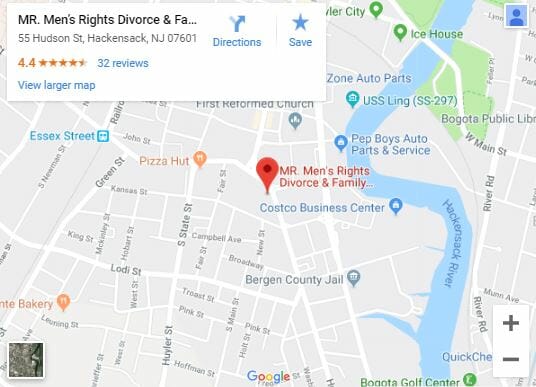 Whether you are thinking about filing for divorce or you are concerned that your spouse is considering divorce, it is important to educate yourself about the process as much as possible. The more you know, the more you can plan ahead, and the better the outcome of your divorce is likely to be.
Whether you are thinking about filing for divorce or you are concerned that your spouse is considering divorce, it is important to educate yourself about the process as much as possible. The more you know, the more you can plan ahead, and the better the outcome of your divorce is likely to be.
To help you start preparing for your divorce, here are 10 key facts you need to know. You can also visit our Video Library for answers to frequently-asked questions about going through a divorce in New Jersey.
1. New Jersey Recognizes Fault and No-Fault Grounds for Divorce.
In New Jersey, you can file for divorce on fault-based grounds (such as adultery or habitual drunkenness), or based on “irreconcilable differences.” The latter is known as a no-fault divorce. There can be benefits to both, though today most divorces in New Jersey are filed on no-fault grounds.
2. No-Fault Does Not Mean Uncontested.
If you or your spouse files for a no-fault divorce, this does not mean that your divorce is “uncontested.” While fault has to do with the reason for filing for divorce, whether a divorce is contested has to do with the spouses’ respective claims to property, financial support, and custody rights.
3. You Have Options Available.
If your divorce will be contested (and most divorces are, at least on certain issues), you and your spouse potentially have a number of different options for coming to terms. While going to court is certainly one of them, negotiating a settlement, going to mediation, or using the collaborative divorce process will usually yield a more amicable and less costly outcome.
4. New Jersey is an “Equitable Distribution” State.
With regard to dividing spouses’ marital assets, New Jersey follows the rule of “equitable distribution,” not the rule of “community property.” In community property states, there is a presumption that each spouse is entitled to half of the couple’s joint assets. In New Jersey, couples’ marital assets are distributed based upon what is fair and just under the circumstances.
5. You (and Your Spouse) are Required to Disclose Pertinent Financial Information.
Early in the divorce process, you and your spouse will each be required to provide financial disclosures. Failure to provide complete and accurate information can have severe consequences, including penalties for perjury. If you are concerned your spouse may attempt to hide assets, there are tools for uncovering hidden assets during your divorce.
6. What You Do Now Can Affect the Outcome of Your Divorce.
From equitable distribution to establishing child custody rights, what you say and do now can affect the outcome of your divorce. To enhance your chances of securing your desired rights, it will be important to develop and implement a targeted strategy sooner rather than later.
7. Not All New Jersey Divorces Result in Payment of Alimony.
While alimony (spousal support) is often at issue in high-net-worth divorces, not all divorces result in payment of alimony. In New Jersey, there is a list of 12 factors that must be weighed to determine whether an award of spousal support is appropriate.
8. If You Have Children, You Will Need to Address Custody and Child Support.
In New Jersey, there are guidelines for calculating child support, and all custody determinations require analysis of a list of factors focused on serving the best interests of the child.
9. Tax Consequences Should Factor into Your Divorce Settlement Negotiations.
When crafting the terms of your divorce settlement agreement (assuming your divorce does not go to trial), it will be important to consider your options in light of the potential tax consequences involved. In many cases, there will be options for reducing overall tax liability that will be beneficial to both spouses.
10. Modifying a Final Divorce Decree Can Be Challenging.
Finally, when considering divorce, it is imperative to view the terms of your divorce as a final resolution. There are only limited circumstances in which the terms of a divorce can be modified, and if you overlook issues or fail to give due consideration to issues during the divorce process, you may find that it is too late to assert your rights after your divorce is over.
Schedule an Initial Divorce Consultation
For more information about what to expect when considering divorce, schedule an initial case evaluation at MR. Men’s Rights Divorce & Family Law of New Jersey by Schultz & Associates, LLC. To speak with an attorney at our Hackensack, NJ law offices in confidence, please call 201-880-9770 or inquire online today.

